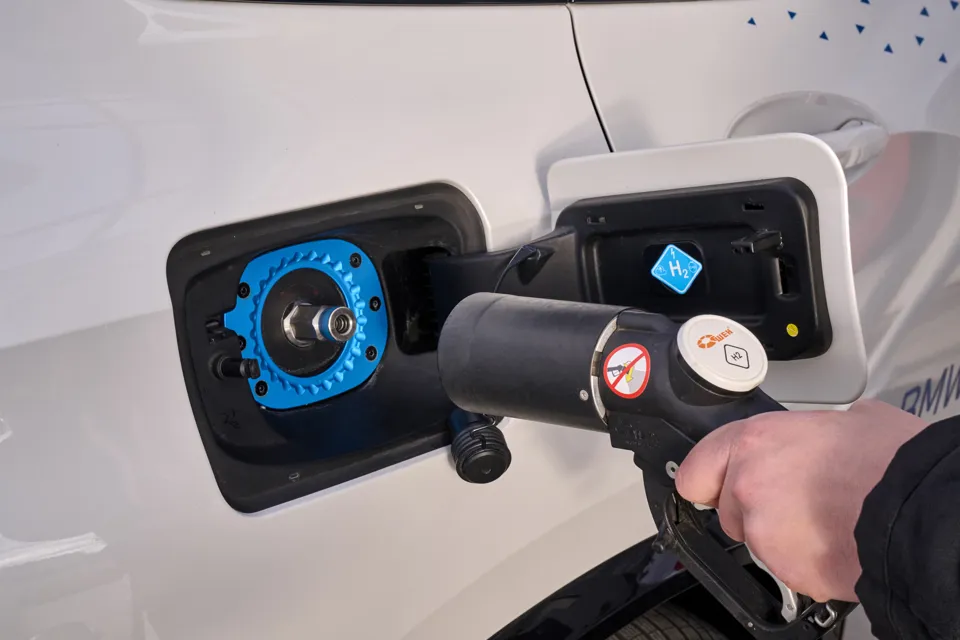Some fleets are starting to “take hydrogen seriously” as a zero-emission fuel option because of issues encountered in running electric vans, says the Association of Fleet Professionals.
These issues include the range and payloads of the currently-available vans, while poor towing ability is also a concern.
The development which has sparked the renewed interest in the fuel is the forthcoming arrival of the Vauxhall Vivaro-e Hydrogen van in the UK, which offers a 249-mile range and the ability to be refuelled in three minutes.”
Elsewhere, Wales and West Utilities has announced it will begin trials with First Hydrogen's fuel-cell van before the end of the month.
Paul Hollick, chair of AFP, said: “Ever since I’ve been involved in the fleet industry, hydrogen has been the ‘five years from now’ solution for zero emissions.
“Historically, it has never been quite ready for adoption and the promise it represents of almost compromise-free travel never quite materialises.
“Now, however, we are seeing a handful of fleet managers – all van operators – start to take hydrogen seriously.
“That doesn’t mean that the many complications surrounding hydrogen have gone away.
“For example, clean production of the fuel – known as green hydrogen – remains expensive, while there are probably fewer than 15 public stations across the UK.
“These facts in themselves present fleets with some very real, day-to-day problems to solve.”
The move towards hydrogen was largely being prompted by the difficulties surrounding the adoption of electric vans in their current form, added Hollick.
He said: “Some fleets in some applications are finding that the range and payload of the electric vans available so far remain unsuitable for their needs.
“There are also operational issues ranging from poor towing ability through to practical difficulties such as charging out of hours.
“Against this backdrop, especially for businesses with strict zero emissions corporate targets, hydrogen looks like an option worth trying.”
However, critics of the fuel point to its many weaknesses, which include a lack of refuelling infrastructure, the high cost of producing green hydrogen.
The lack of places to refuel could require fleets to construct their own hydrogen bunkering facilities to ensure supply, said Hollick.
In order for hydrogen to become a serious national option in the UK, hydrogen needs substantial government backing similar to the kind seen in Germany, he added.
“That means both support for the purchase of new vehicles and the creation of a viable national network of green hydrogen stations,” said Hollick.
“Our view is that when it comes to early adoption, as with electric vehicles, production availability and technology tends to follow the places where there are incentives.
“However, that just doesn’t look like it’s happening in the UK in any meaningful way, certainly under the current government.
“Until then, we’ll be watching the few fleets that are actively adopting hydrogen with a high degree of interest.
“Some of the most prominent are AFP members and we hope to share their experiences and their developing best practice over the coming months and years.”




















Login to comment
Comments
No comments have been made yet.